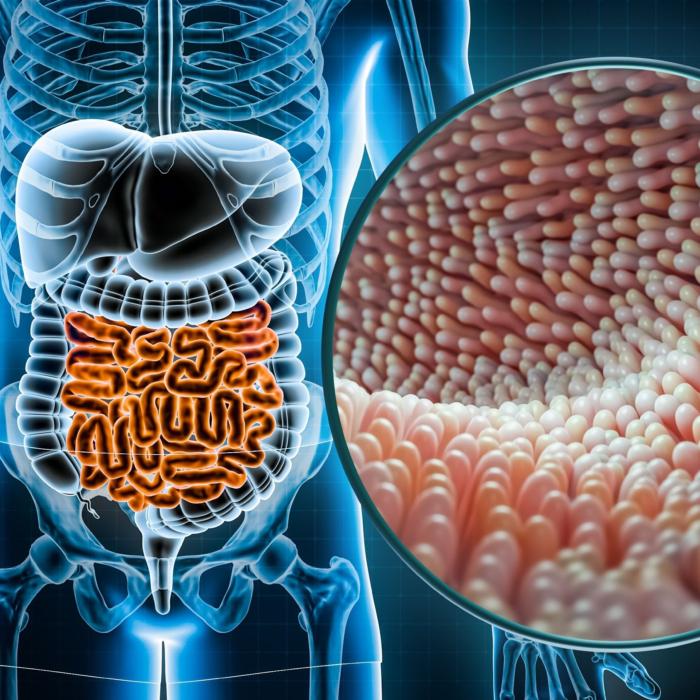Short-chain fatty acids (SCFA) are anti-inflammatory. That means they cool the fire of inflammation that our body uses to burn off pathogenic invaders. Unfortunately, this inflammation function is widely dysfunctional in modern people, because of constant triggering by stress, environmental toxins, and processed foods.
The result is that instead of burning off infections, inflammation burns the mind and body instead. The resulting damage is linked to nearly every modern disease—mental and physical.
Eating for Trillions—Prebiotics and Probiotics
Our microbes want prebiotics—plant-based fiber. It keeps them healthy and nurtures the kind of community that can produce plenty of SCFAs and ward off invasions of pathogenic microbes. If that community is damaged, for example, from a round of antibiotics, we can also add new microbiota to our gut by eating probiotics. These are foods that contain live beneficial bacteria—fermented foods.Nurturing these microbes can be the difference between health and disease.
“If we feed our gut bacteria damaging substances like excess sugar or salt, ultra-processed food, chemical synthetic preservatives, artificial colors and flavors, they can be effectively poisoned. Then, the bacteria don’t cooperate and behave as they should, harmful bacteria can grow, and the entire ecosystem is disrupted. Inflammation will rise.”
While eating fermented foods regularly can support the microbiome, it’s likely even more important to sustain the population of microbes already inside you. That’s because before microbes can get to their primary destination, the cecum, they need to pass through the stomach. Our stomach uses enzymes and hydrochloric acid to break down food. Few bacteria can survive here, which can limit the effect of ingesting probiotics.
When food leaves the stomach, it arrives at the main place it gets used—the small intestine. This is where the small intestine, pancreas, and gallbladder help 90 percent of food cross into the bloodstream, giving us the nutrients that fuel us.
Some bacteria live in the small intestine, but the vast majority of our gut microbes (fungi and bacteria) live in our cecum—the first part of our large intestine. Here, microbes feed on the small intestine’s leftovers and carry out their essential work.
Short-Chain Fatty Acids
Bacteria metabolize plant fiber through fermentation and create metabolites. Metabolites are typically small molecules and exist in tremendous variety. They get their name from the fact that they result from metabolism and contribute to metabolism. Metabolism is the biochemical process of turning the food we eat and the air we breathe into our molecular body and all its various activities.Type 2 diabetes is associated with insulin resistance or sensitivity, a process of insulin being unable to clear glucose from the blood, which can lead to a dangerous buildup.
“Good bacteria lowers our sensitivity to insulin,” Li said. “When insulin goes up, it’s useful for energy, but if it continues to because your body is sensitive and not absorbing it, it is a road to diabetes.”
Our hunger and digestion go awry when we don’t have the microbes we need to produce sufficient SCFAs. Not surprisingly, obesity is associated with a low level of short-chain fatty acids, which are considered a biomarker of a healthy microbiome, according to Leigh A. Frame, associate director of the George Washington University Resiliency & Well-Being Center and a nutrition and microbiome expert.
“Strikingly higher levels of serum acetate, but not propionate or butyrate, were significantly associated with fewer respiratory problems in the infants,” according to the study.
- They alter levels of histone acetyltransferase and histone deacetylases, which work to protect our DNA by activating gene expression, DNA replication, and DNA repair.
- They signal specific fatty acid-sensing G-protein-coupled receptors, which are expressed on immune cells and on epithelium and endocrine cells. They are central to metabolism and also help regulate an incredible range of bodily functions, including sensation, growth, and hormone responses.
- They give the body anti-inflammatory mechanisms in the periphery and tissues due to the first two mechanisms.
Eat More Fiber
The single most important way to ensure your gut is making adequate short-chain fatty acids is to eat sufficient fiber.Fiber also speeds up food transit time in the colon and decreases pH, a measurement of acidity versus alkalinity. A lower pH is ideal in the gut because it’s associated with inhibiting pathogen growth and increasing short-chain fatty acid production.
“When we add fiber to the diet, it’s a positive feedback loop,” Frame told attendees at the recent Malibu Microbiome Meeting. “But we should be quite cautious. You should have a slow, gradual transition to a high-fiber diet.”
While health findings associated with microbiota and metabolites have been tremendous in the past two decades, Li said it’s humbling to consider how much is still undiscovered.
Profile of a Top Bug
Faecalibacterium prausnitzii bacteria make up 5 to 15 percent of most people’s total microbiome. It’s the main producer of butyrate, a critically important short-chain fatty acid that helps regulate the immune system with strong anti-inflammatory compounds.Palanisamy notes that, unfortunately, there are currently no probiotics that contain F. prausnitzii, although levels can be raised by eating a diet of diverse prebiotic foods such as leafy green vegetables, mushrooms, apples, and those that include polyphenols, inulin, resistant starches, and arabinogalactan (found in carrots, radishes, pears, tomatoes, and coconuts).
Short-Chain Fatty Acids and the Brain
The clear link between microbiota deficits and neurological conditions reveals the interdependence of the gut and brain. Short-chain fatty acids could play a key part in gut-brain signaling related to neurodevelopmental disorders as well as neurodegenerative diseases, according to a 2020 article in Frontiers in Endocrinology.- Fecal short-chain fatty acid concentrations are lower in patients with depression. Butyrate in particular is noted for its antidepressant-like effect.
- Children with autism spectrum disorders have had both lower and higher levels of certain short-chain fatty acids than control groups.
- Recent studies have also suggested that an intestinal bacteria imbalance plays a role in the development of anxiety, bipolar disorder, psychosis, Alzheimer’s disease, Parkinson’s disease, and multiple sclerosis.










